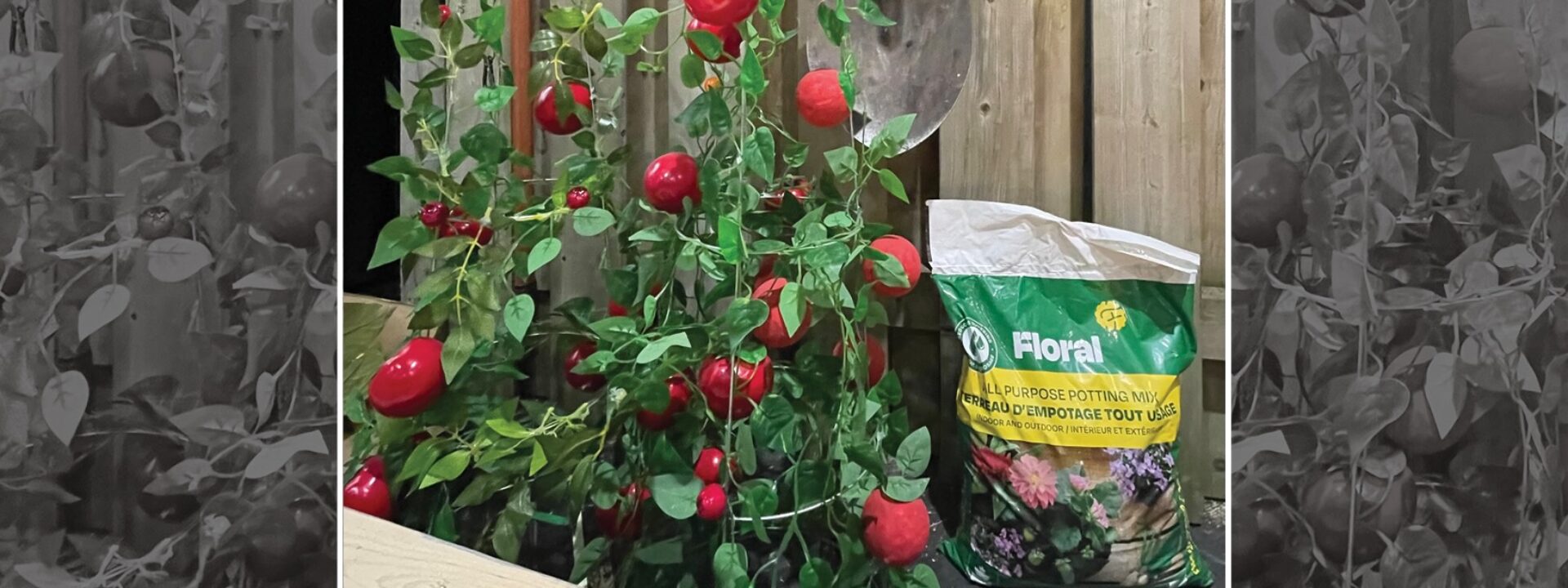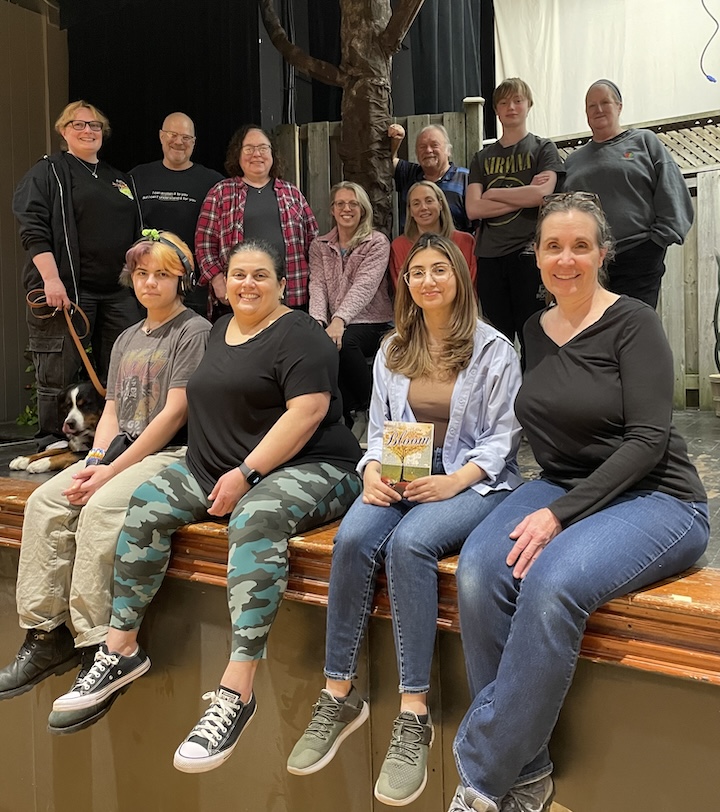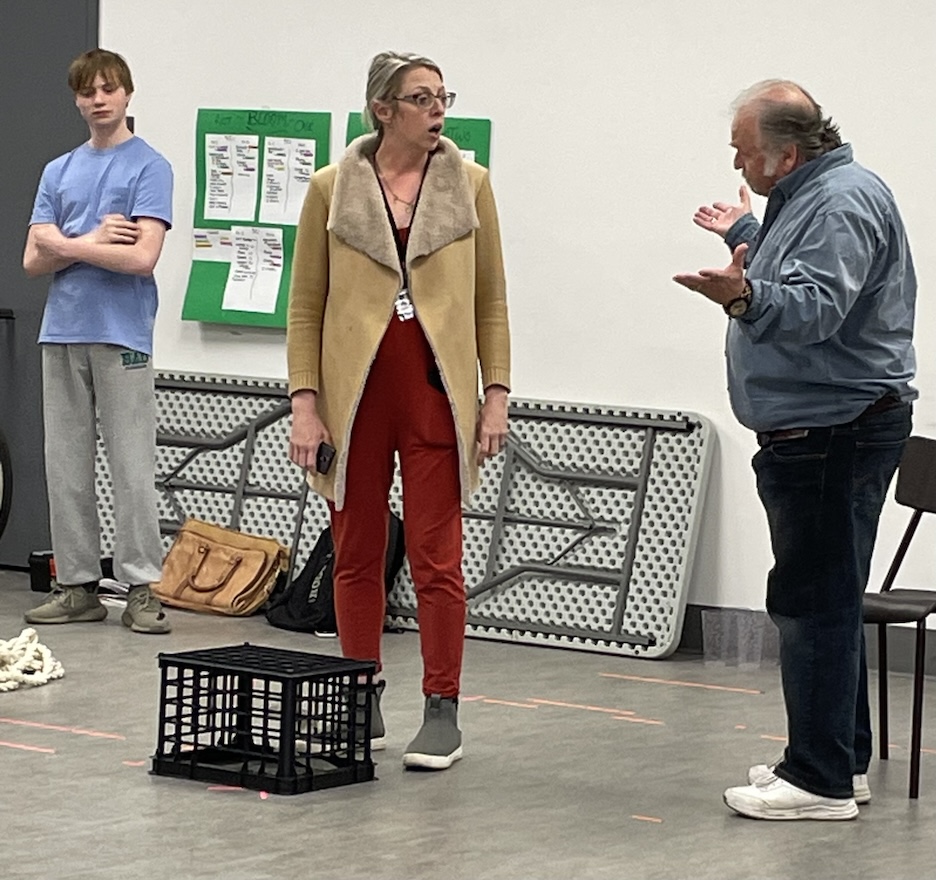Grief, gardening and growing up

Village Theatre Waterdown presents Bloom, a play about innocence, hope and friendship, and a production where newer performers are cultivating their craft.
It’s fitting that Village Theatre Waterdown’s spring production is titled Bloom, in more ways than one. The play follows a grieving teenager who, after acting out at school, embarks on a journey of friendship and growth as he helps a local gardener cultivate on a bunch of abandoned city lots.
Director Caroline Way recalls being moved by playwright Andrew Morton’s script. “When I read the play, I was struck by the tone and mood…It spoke to me of innocence and hope. Something that we are quickly losing, especially in light of the strife and struggles of the past few years,” she says.
“I like those types of stories, the ones where small moments make big impacts in the life of a person or in this case, more than one.”
Bloom is an award-winning play by a British playwright who transplanted himself to Detroit. Morton’s theatre-making has long combined art with education, social awareness, and community engagement.
According to his website, Morton currently works with “a variety of social service and arts organizations,” including TimeSlips, a nonprofit that “promotes creative engagement techniques for older adults and their caregivers.” In 2021, he presented Sofa Stories, a project with “young people who have experienced homelessness.”
This connects nicely with Way’s notion of theatre: “Theatre doesn't happen alone. It's community art right from the cast and crew through to the audience.”

Her own history with Village Theatre began during her last year studying drama at McMaster University. She auditioned for The Lion, The Witch and The Wardrobe, and again for its production of Top Girls. She worked on several other shows, and enjoyed the sense of fun, community and camaraderie she found. “Creating art at Village Theatre, in my experience, is and has always been collaborative,” she explains. “That's what I like most about it.”
This time around, Way’s collaborators are producer Maureen Dwyer, stage manager Jodie Wilkinson, and Bloom’s cast: Bruce Edwards, Andrew Plasky, Sarah Ramage, Christine Marchetti and Dania Homsi.
Here the play’s central themes emerge yet again, since the cast includes newer performers. “It's not only the characters that bloom in Bloom,” the director remarks. “The tremendous growth that has occurred in the short amount of time that we've been rehearsing is beyond rewarding. I'm so proud of the work they've put in and how well they took direction.”
Way is thoughtful about the challenges inherent in developing novice actors, which seem not unlike those encountered by a gardener with brave new green shoots. This production has seen the cultivation of many new skills – from character development, to movement, to voice projection – with the end goal being the ability to deliver, as she describes it, “an emotionally honest performance.”
“I've seen a great tenacity and a willingness to learn and be shaped,” Way says. “It's been humbling to be allowed to do that. I've had a conversation with more than one about recognizing the need to put aside their insecurities and just trust the process – to step into what is being asked of them. To visibly see that implemented is something else.”

From her vantage point as director, seeing the vision of a production through to fruition is particularly rewarding. “It is so incredible. Sometimes it grows and changes from the original, but when it all comes together, it's surreal in a way. (Then) when the audience is pulled into the story and you can physically feel them responding in the way you hoped, it's a pretty powerful thing.”
Although the play comes with a warning that it has some adult language and mature themes, the director says that there is a good balance struck in Bloom. “It was nice to find a story that was both moving and funny. Real people with real emotions, just trying to move forward in the face of grief and change. Relatable for everyone.”
She describes the production as suitable for teens and adults. As Way puts it, working through grief is a process experienced by all ages of individuals, as is “working together to help each other through difficult times.”
“The story of Bloom is one that we can all relate to,” she says. “It's about family, both blood and chosen, and the blessing we can find in the gift of an unexpected friendship.”
NEED TO KNOW
Bloom at Village Theatre Waterdown
Memorial Hall, 317 Dundas St. (Hwy 5), Waterdown
April 19, 20, 26, 27 and May 2, 3, 4 at 8 p.m.
April 21, 28, May 5 at 2 p.m.
Tickets: $25 (group rate available)
Box office (provided by the Burlington Performing Arts Centre): 905-681-6000
Ticket purchase details are here.
Doors open 30 minutes prior to the performance
90 minute run time with one 20-minute intermission












